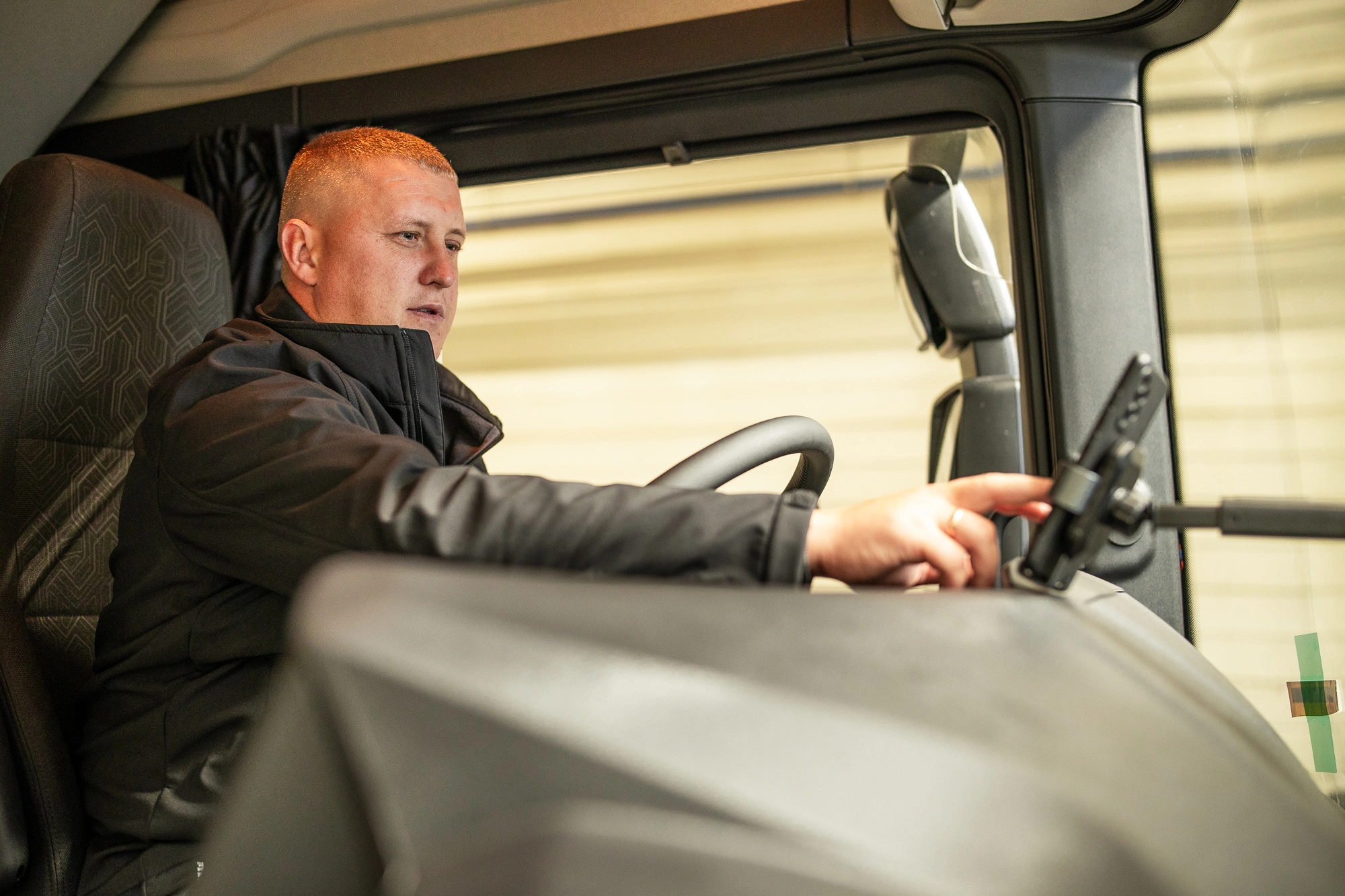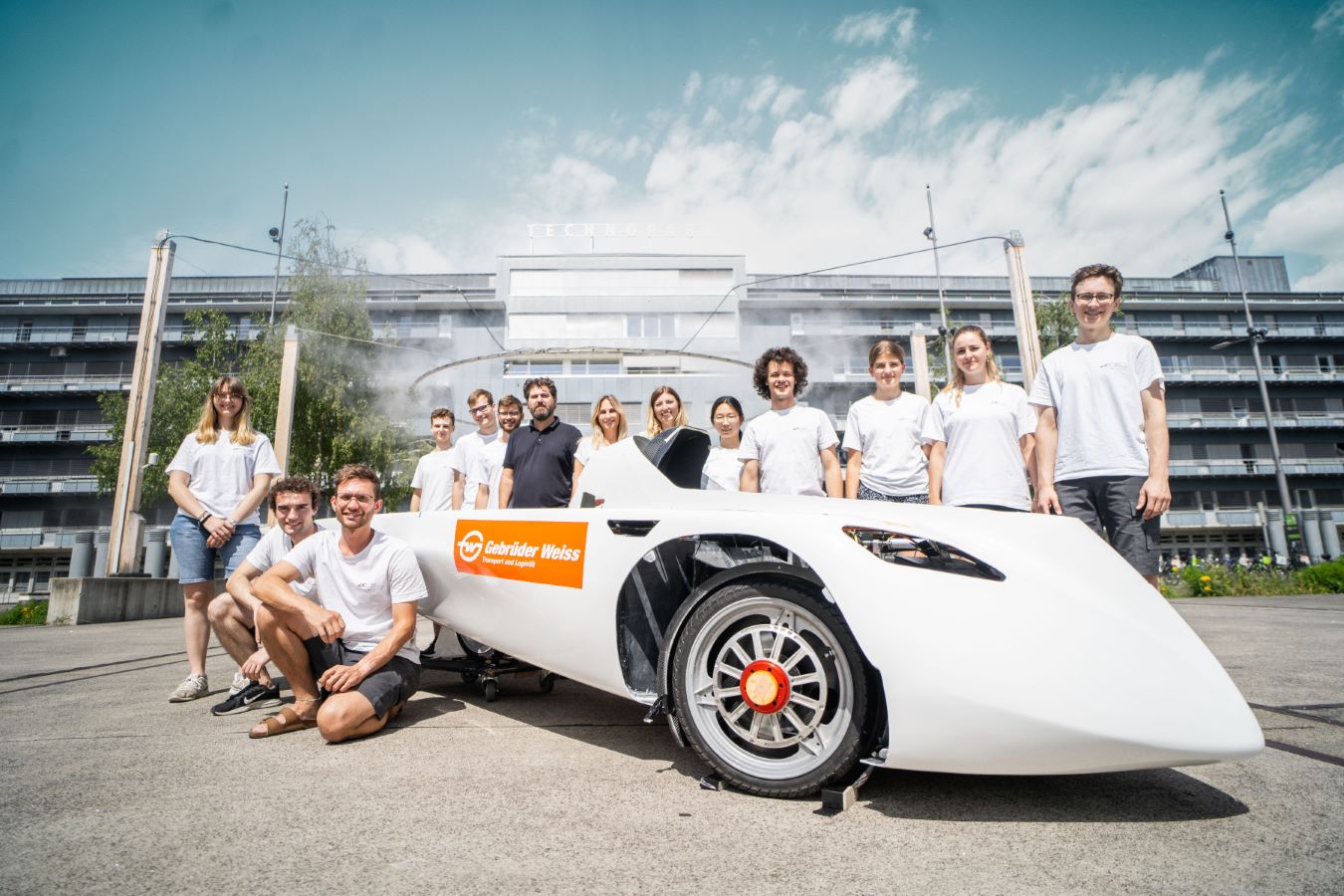The logistics sector is actively seeking sustainable solutions to environmental challenges. But what are the real examples of sustainable logistics services solutions? The use of battery electric vehicles (BEV) and electric trailers is an innovative step in this direction. Take a look at the first available testing period of a fully electric truck and trailer done in collaboration between Nestle, Girteka, Volo, Schmitz Cargobull, and BP Pulse.
The Role of BEV and Electric Trailers in Sustainable Transport
In our journey towards sustainable logistics, the adoption of battery electric vehicles (BEV) and electric trailers is one the most mentioned solutions. “As today’s world addresses main challenges, one of them especially touches the logistics – it is decarbonization. And here is where Battery Electric Vehicles supported by electric trailers can be one of the solutions,” summarizes Viktorija Terekė, Head of Sustainability. Recent joint activity from Nestle, Girteka, Volvo, Schmitz Cargobull, and BP Pulse, was aiming and testing fully electric solutions for short deliveries.
This initiative represents a crucial step toward zero-emission logistics, emphasizing the broader impact of leaders’ efforts on the environment. As highlighted by Harry Baxter, EV Fleet Sales Driector for BP Pulse in Europe, ” In terms of e-mobility being a solution then, so we see that approximately 25% of emissions globally are from transportation. And the fact that electric vehicles have zero tailpipe emissions makes it an obvious choice.”
However, the discussion is still ongoing where BEV and how can be used. As the discussion is maintained many companies are already testing and trying to find a common understanding and solution that will combine customer needs, manufacturers possibilities, infrastructure capabilities and availability, and logistics companies to conduct and combine all relevant stakeholders. “The path to decarbonization cannot be walked alone. It necessitates an unprecedented level of collaboration,” highlighted by Viktorija Terekė.
 Addressing Challenges and Advancing Solutions
Addressing Challenges and Advancing Solutions
Implementing battery electric vehicles (BEV) and electric trailers comes with its set of challenges, particularly around infrastructure and technology. During the test as well as after the discussion is still ongoing. A critical aspect of this transition is infrastructure. The need for charging stations and maintenance facilities for electric and alternative fuel vehicles is immediate.
Meanwhile, Mathias Fleischer, Supply Chain Director from Nestle points out the progress and hurdles in electrical transport: ” Electrical transport has come a huge way when you look from years ago till today because now today we can run ranges up to 250 and 300 kilometres which is much better like it has been years before. Still, the charging facilities we need to improve. We need to find the way how we do the optimal charging and how we do the optimal payload on this one.”
However taking into consideration the structure of today’s heavy goods transportation, there is hope. “We know that if you look at all the goods in Europe, 45% are traveling less than 300km per day. This is also a range that we easily can handle today without charging. If you then charge, you will have a significantly longer range. That means that we have examples of our trucks running up to 640km per day, with some top-up charging during the day. Charging takes 90 minutes from 0 to 80%, but in many cases, you only charge from 30 to 80% during the day. And that means that you can do it during a scheduled break of 45 minutes,” informs Stefan Widlund, Electromobility Director at Volvo Trucks.
“The path to an expansive and efficient EV charging network is paved with collaboration—spanning industries, innovators, and policymakers. Through strategic partnerships, like this, we are tackling the immediate need for more charging stations. We’re building out a big network where that is high power charging. The trucks with trailers at a 40-ton size can pull through these bays. There’s no uncoupling of those trailers. You’re not adding to that downtime, but having to uncouple a trailer, leaving in an unsecured position. So it makes the operations much smoother and safer. And that network means that truck operators are flexible as well to travel and know there’s charging available. The second point then would be convenience. So having charges in convenient locations, but also having convenient options for drivers,” explains Baxter, BP Pulse.
Envisioning the Future of Sustainable Transport
The collaborative effort in utilizing battery electric vehicles (BEV) and electric trailers is not just about addressing today’s challenges, that is not only the topic of infrastructure but also the capabilities of today’s solution and cost-oriented solution. “Currently, costs of electromobility are very much dependent on the cost of batteries. The biggest question mark for any business case is how much I have to invest versus what is the outcome. If shippers are not ready to pay more because goods are transported in an electric reefer, then it gets critical. Pay-off needs to come by the operation itself. That’s why we have decided to reduce the battery capacity. It can safely guarantee operations for a minimum of five hours, but it doesn’t cost as much as you have a bigger battery pack that also reduces payload, so where the economy is very much critical,” explains Boris Billich, CSO from Schmitz Cargobull.
Despite challenges, when facing it as a partnership, as it was with this case, BEV and E-trailers can be one of the solutions to achieve ambitious goals. “Electric trucks have a lot of advantages, a lot of positive things. You don’t have the diesel, you don’t have the CO2, and the noise is much less than it has been before. So it’s a no-brainer once we get the technology into place. That is the best way how we can move forward from here. That’s important,” summarize Fleischer, Nestle.
The collaboration with partners such as Nestle, Volvo, Schmitz Cargobull, BP Pulse, and Girteka in this project is invaluable. First and foremost, the collective action and shared commitment among these diverse yet synergistic partners underscore the necessity to act together.
“Open dialogue is fundamental in this collaboration. It ensures that all parties, from a global food and beverage leader like Nestle to an automotive and trucking pioneer like Volvo, and from a trailer manufacturing expert like Schmitz Cargobull to energy specialists like BP Pulse and logistics providers, are on the same page,” ends Viktorija Tereke.
Read Similar…
Haulier Reduces Fleet Emissions and Achieves Accreditation









 Addressing Challenges and Advancing Solutions
Addressing Challenges and Advancing Solutions

